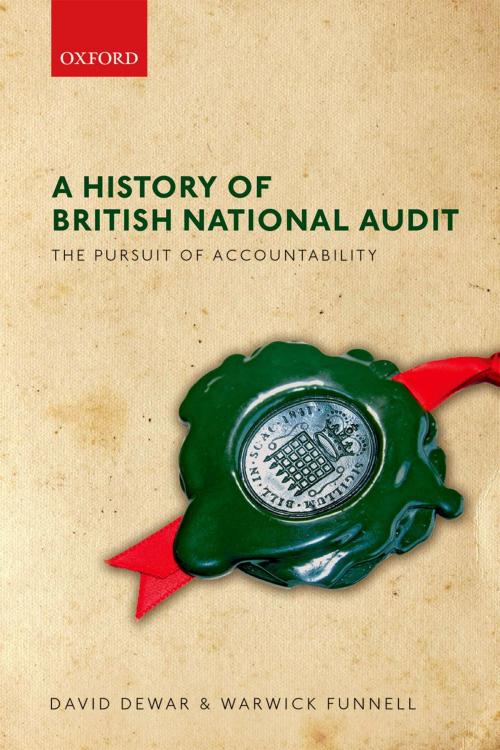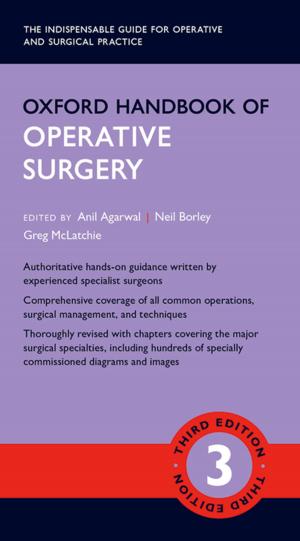A History of British National Audit:
The Pursuit of Accountability
Business & Finance, Business Reference, Corporate History, Accounting| Author: | David Dewar, Warwick Funnell | ISBN: | 9780192507495 |
| Publisher: | OUP Oxford | Publication: | December 15, 2016 |
| Imprint: | OUP Oxford | Language: | English |
| Author: | David Dewar, Warwick Funnell |
| ISBN: | 9780192507495 |
| Publisher: | OUP Oxford |
| Publication: | December 15, 2016 |
| Imprint: | OUP Oxford |
| Language: | English |
The core theme of the book is the importance of an independent state audit to ensure that the Executive is held accountable to Parliament. Instilling effective financial control and accountability for the use of public funds and the proper conduct of public business has been an incremental process that has taken centuries. This book provides a detailed history of the forces and personalities involved in the development of public sector audit, including the battles which extended well into the 20th century to establish a public sector audit that was constitutionally and in practice independent from the influence and control of the Executive. It identifies key themes that have emerged and re-emerged in these developments, and the challenges and obstacles faced and overcome over the years to arrive at today's modern audit framework and to establish current principles and practice in accountability to Parliament and the public. The book charts the movement of public sector audit from a focus on the presentation and accuracy of accounts to the introduction of the added dimension of ensuring that funds are spent only for purposes approved by Parliament and that resources have been used efficiently, effectively and with economy. It explores the seminal relationships of the NAO and its predecessors with the Treasury, spending departments and the Public Accounts Committee; and it deals with the impact of major changes still taking place in the objectives, management and delivery of government programmes and services, including the growing involvement of outside agencies and the private sector. The book reviews the NAO's current achievements, continuing challenges, developments in the range and nature of its work, and future priorities. Importantly, it provides an authoritative source of reference for professionals and academics, while remaining accessible to readers with a more general interest in the developments and issues examined.
The core theme of the book is the importance of an independent state audit to ensure that the Executive is held accountable to Parliament. Instilling effective financial control and accountability for the use of public funds and the proper conduct of public business has been an incremental process that has taken centuries. This book provides a detailed history of the forces and personalities involved in the development of public sector audit, including the battles which extended well into the 20th century to establish a public sector audit that was constitutionally and in practice independent from the influence and control of the Executive. It identifies key themes that have emerged and re-emerged in these developments, and the challenges and obstacles faced and overcome over the years to arrive at today's modern audit framework and to establish current principles and practice in accountability to Parliament and the public. The book charts the movement of public sector audit from a focus on the presentation and accuracy of accounts to the introduction of the added dimension of ensuring that funds are spent only for purposes approved by Parliament and that resources have been used efficiently, effectively and with economy. It explores the seminal relationships of the NAO and its predecessors with the Treasury, spending departments and the Public Accounts Committee; and it deals with the impact of major changes still taking place in the objectives, management and delivery of government programmes and services, including the growing involvement of outside agencies and the private sector. The book reviews the NAO's current achievements, continuing challenges, developments in the range and nature of its work, and future priorities. Importantly, it provides an authoritative source of reference for professionals and academics, while remaining accessible to readers with a more general interest in the developments and issues examined.















